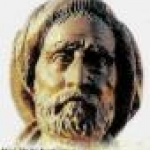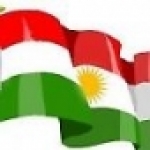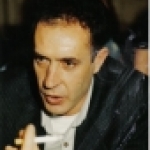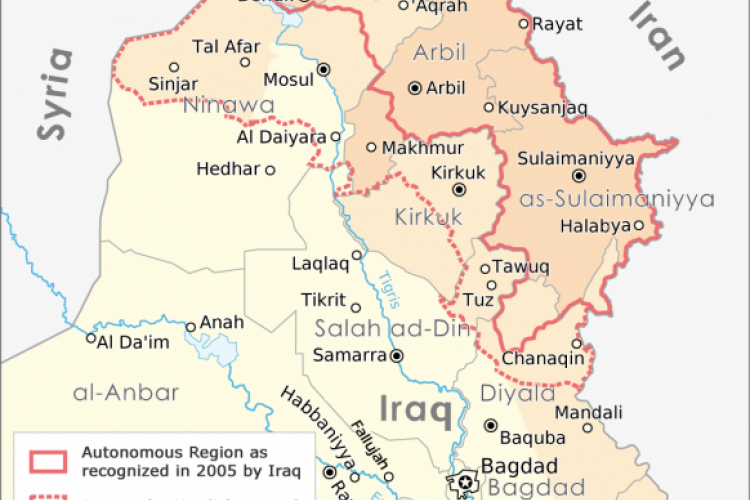Fethullah Gülen Versus Said Kurdi (Said Nursi): Whose original Idea was It to slowly change the World system?
By Aland Mizell – KURDISH MEDIA – Today Turkey and even the West and East are talking about the Gülen movement from its Interfaith Dialogue, Rumi Forum, and Turkish Cultural Centers to the Alliance of Civilization. The questions surrounding the founder and the movement are numerous. Serious students and scholars would do well to ask them. An initial question asks what ideas he teaches. Where did Gülen get his ideas? Are those ideas new or did an earlier thinker devise them but now receives no credit for them? Are they really Gulen’s thoughts or Said Kurdi’s? If they are Said Kurdi’s ideas, then why do Gülen and most of his followers not like the name “Said Kurdi”? When Gülen’s community studies Said Kurdi, what do they call him or how do they describe him? How did Said Kurdi live?
What differences and similarities do Gülen and Said Kurdi have? What did Said Kurdi say about the future of Islam and the future of the world? How did Said Kurdi handle the persecution from the secular government despite his strongly opposing being involved in politics until the 1950’s? Why did Said Kurdi endorse the Menderes party? How did Gülen handle the prosecution from the secular government? What did Said Kurdi say to the chief of the military–Ataturk? Why does Gülen endorse the Justice and Development Party (AK Party)? Said Kurdi called himself an old and a new Said. What does that mean? How does Gülen know the exact event that will happen in Turkey? Is he really Mehdi, or does he have very high sources of intelligence? Why is Gülen not happy with DTP? What is Gulen’s current problem with the Hezbollah in eastern Turkey? Why was Gülen silent about the Kurdish Question for such a long time, but when it came to issues of Turkish minorities who live in other countries, Gülen cried for them? What kind of assimilation plan exists for the Kurdish people? Is Gülen a big threat to the Kurdish Question? Why did Gülen keep silent during Saddam’s genocide of the Kurds? Why does Gülen now go after the military criticizing the same military that he was earlier cheering despite all of the atrocities that the military did to the Kurdish people in southeastern Turkey? Why does Gülen praise the police but criticize military generals? If someone offends Gülen, will it be a criminal offense? What does the future of freedom of speech look like in Turkey? Is Gülen eliminating every obstacle that gets in his way?
Is it because the DTP objects to some of Gulen’s views that he voiced in Diyarbakir? Is Gulen’s advance still considered a movement or has he already formed the government in Turkey? Who is a real mentor of the AKP? How powerful is Gülen in America? How many Gülen followers have infiltrated the CIA, FBI, NSA and other American intelligence agencies and high offices? Who does Gülen target in the USA? Is Gülen targeting minorities, such as Muslim immigrants from Bosnia, Central Asia, and Pakistan, as well as Kurds and others? What kind of methods does he use in the USA to run his mission activities, such as cultural centers, Islamic centers, American cooking classes, English classes, cultural events, programs to send medical doctors to Africa etc.? Each year how many Turkish missionaries come from Turkey under the guise of being graduate students and getting paid by American taxpayers to disseminate their Dava? Does Gülen copy the Christian mission strategy by establishing humanitarian agencies or non-governmental organizations to spread Islam? How close is Gülen to former President Bill Clinton? Why does he use Bill Clinton to promote himself? When will Gülen go to the USA media and break his silence as he did in Turkey? How did Gülen break the silence in Turkey? Is Gülen moving to the Hicret time, his migration to other places to increase his power? Why has Gülen changed his mind about going to China and staying in China? When will Gülen travel to visit his schools around the world? Does Gülen really want Iran to have nuclear weapons? How did Gülen take advantage of the collapse of the Soviet Union and conquer Centrals Asia? How did Gülen take advantage of 9/11 in the USA? What is the significance of those two events for the Gülen Movement? Does it mean Hicret for him? Why did Said Kurdi not have any special guard or servant? Why did Said Kurdi never live a life of luxury? Why did Said Kurdi strongly reject being worshipped or idolized? Does Islam really permit devotees to worship men or idolize them? Why do many people idolize Gülen and even name institutes and institutions after him? Why are many institutions not named after Said Kurdi? Why have many poems and songs not been written about Said Kurdi? Yet, many songs and poems have been written about Gülen.
Gülen has always set the image that he is against political Islam. But behind the scenes Gülen searches for political Islam. Gülen argues that religion should be an individual piety and a private matter and says he does not seek any political Islam, but he moves from ideas of not involving a political ideology to the action of forming a government, and an intolerant one. He does not tolerate any other ideas but his; he wants his ideas to be dominant, and that is why he was a stern critic of Necmettin Erbakan, the leader of the Welfare Party who late in 1995 briefly led a coalition with other conservative parties. He even backed the army to close the Welfare Party, which forced Erbakan to resign, so that after the closure, Gülen formed the AK party and became closer to its agenda. Gülen and his media would have never dared to criticize the military or government nor would he have mentioned much about politics, but today Gulen’s media outlets, such as the Zaman newspaper and Saman Yolu Television, give their backing to the AK party publicly. In their coverage, they rather filter issues through Gulen’s religiosity; for example, in the case of Said Kurdi, if an individual calls Said Nursi “Said Kurdi,” he will be labeled because this name is considered racism. However, when Gülen says that God has chosen only the Turkish nation to carry a holy Dava, it is not racism; instead, it is considered patriotism. If Said Kurdi is Kurdish, and he never denied his identity, but rather he was always proud to be Kurdish and proud to have this heritage, then calling him Said Kurdi should be appropriate by any standard.
There is nothing new. What Gülen is doing today Said Kurdi already understood a century ago. At the early age of fourteen, Said Kurdi completed a traditional madrassah education. He studied science, mathematics, and philosophy, and then later on he realized that a madrassah education was inadequate, so he proposed a blueprint for establishing a university in eastern Turkey. The education curriculum should require three languages to be taught: Turkish, Kurdish, and Arabic. The Turkish language must be offered because in Turkey the majority are Turks; Kurdish should be included because mostly Kurds live in eastern Turkey; and Arabic because the Kurdish people should study in the native language of their faith. Since Turks are Muslims, and the books on the Islamic religion are written in Arabic, the university should teach Arabic. Subsequently, however, his plan never materialized. Instead Sultan Abdulhamid sent him to a mental institution because he was suspicious of his being so smart, raising very challenging questions, dressing, of course, in his Kurdish style, and never fearing anyone. Later on psychiatrists who took care of him wrote his report, “If this man is mad or crazy, then there is no sound man in the world.” Sultan Abdulhamid offered Said Kurdi some money for him to return to eastern Turkey, but Said Kurdi reject Abdulhamid’s offer. Also, Said Kurdi was advocating that he establish a university in southeastern Turkey to demolish the conflict between secular schools and theological madrassah schools. Furthermore, he attracted students from Muslim countries to promote solidarity among Muslims. Until recently Turkey ignored this suggestion, but Ankara now realizes the necessity of implementing his plan.
Said Kurdi initiated a method showing that science and religion are compatible. He argues that science continuously speaks of God, and everything represents the relationship between God and the creature, who speaks of it in his own tongue. According to Said Kurdi, every piece of the cosmos is a channel that connects us to our creator. In his book, Fruits of Belief, he explains this interdisciplinary method of teaching science, such as physics or chemistry with literature etc. Today Gülen borrows Said Kurdi’s ideas and methods, but without much mention of Said Kurdi. Several decades ago, Said Kurdi gave his manual and his plan for implementing his ideas. Thus, a long time ago Said Kurdi wrote a collection of books about Islam leaving the world with a rich history. Said Kurdi more than half a century ago formed the important link for the Islamic traditions. Turkey was in a total state of decline. The Caliphates were being abolished, and most of the Islamic countries were under colonial powers. In Said Kurdi‘s view, the intellectuals and political elite had lost their own culture, religion, values, and history. According to him, the more the Muslim world gets away from its religion and values, the more it is prone to decline. He also argues that the more the Muslim world ignores the importance and values of education, especially science and technology, the more it is prone to sink into poverty and deprivation. In the early years of the Turkish Republic some of the Kurdish tribal leaders asked Said Kurdi about his view on freedom. He answered to the tribesmen, “Our enemy which is destroying us is ignorance, not Armenians or Russians but ignorance; the one way to defeat it is to be educated.” Isn’t Gülen using this blueprint of Said Kurdi’s ideas? When an inquirer looks at Gülen’s method, he will see that Gülen uses the ideology of intellectual models presented in his movement; one composed of an Ottoman inheritance, market economy, modernization, science, and technological advancement, and Islam.
Said Kurdi was never afraid nor did he hesitate to defend his beliefs. He always believed God would defend the Quran and that the truth of Islam would prevail. Said Kurdi and Gülen differ in a number of ways. Gülen for a long time praised the military and until recently he did not dare to criticize the generals. Didn’t Gülen know the military’s policy of wrongdoing toward the Kurdish population in eastern Turkey? If he knew, why did he keep silent? The reason was that Gülen was afraid because he knew that at that time the military had a great deal of power and therefore could crush his movement and cost him his power. But Said Kurdi argues that if a person is silent against injustice, that person participates in injustice himself. We see now what the military has been doing in Turkey for a long time. When Ataturk invited Said Kurdi to Ankara, the Great Assembly welcomed him with enthusiasm and an official ceremony. Ankara offered him a position as Minister of Religion, but Said Kurdi was displeased at what he saw in Ankara and told Ataturk without hesitation that most of the Assembly members were ignorant of Islam and do not read the prayers five times a day. He refused to work with a secular system of government. Even some documents claimed that he used some harsh words to answer Ataturk’s offer. Instead of praising him, he refused him.
Later on, even though he had no relation with the Kurdish insurgence, he was exiled from Istanbul to Burdur, and then to Isparta and to Barla. Said Kurdi lived most of his life in prison and in exile. When Gülen was charged, he escaped to America under the auspices of need for health care. Now Gülen is being protected by private guards and only the privileged can visit him. Said Kurdi never lived a life of luxury life and never had a body guard instead of a soldier who was his guards. He never escaped from Turkey to live in any other country. When he was defending his country in battle, he was captured yet somehow managed to come back to Turkey, unlike Gülen who saw that the military was trying to put him in jail and fled to the U.S. However, when Said Kurdi was in jail in Barla, he wrote books named Words, Letters and Flashes. In these books he contrasts how life is viewed with faith and without faith. With this method he disseminated his ideas to many people throughout Anatolia. During the First World War Said Kurdi even fought against Russians and Armenians defending his country against a Russian invasion. He showed courage by never giving up, remaining on horseback during the shelling, and refusing to surrender to Russia.
He was captured by Russians and sent to Siberia as a POW. Said Kurdi spent two and a half years in prison and while there spent his time educating prisoners around him. He later escaped from the prison and returned to Istanbul. Also, Said Kurdi confined his work to his own homeland. He never feared for nor lied to prove his religious faith and to stand fast on his faith. Said Kurdi’s life was about self-accounting and self-struggle. He lived a modest life, not accepting anyone’s alms, charity, or gifts. He never hesitated to condemn those who followed the wrong way against the unjust, tribal leaders, and politicians. Said Kurdi lived consistent with his ideas throughout his life. He never compromised, never feared, and never lived in a way contrary to what he thought and believed; consequently, he spent most of his life in prisons and in exile, but he never was defeated. Said held that belief is the prescription for salvation because the main source of energy comes from belief and faith. Because of his virtues and actions at such a young age, Said Kurdi received the love, respect, and admiration of the people from all levels and backgrounds as well as scholars in Anatolia. Said Kurdi believed that the best way to defeat Europe or the West was to educate Muslims so strongly that they surpass the west both intellectually and scientifically answering the needs of the twenty-first century.
Said Kurdi was trying to refute the West and especially the British Minster’s comment in Parliament as he held the Quran: “The only way we can defeat Muslims or rule over the Muslims is to remove the Quranic way from their hands or alienate Muslim from the source, which is the Quran; otherwise, we cannot defeat them.” A long time ago Said Kurdi advocated that the way to bridge the gap between scientific thought and religion was by teaching them Islam together with physical science. To prove that Islam is compatible with science, Said Kurdi argues that Islam was the sources of true civilization and saw everything within the framework of Islam, so that only Islamic countries could truly progress. He advocates that the whole world could only find salvation and peace through the establishment of an Islamic civilization. He argues that the way the Islamic world would gain ownership is if it advances in science and technology, has a military might, and gains economic independence from the West. He contends that civilization was not Christian property that of Islam. What is new that Gülen is doing today?
In his early years, Said Kurdi had a limited involvement in politics, but then later on he belittled politics and even considered it to be harmful. In his famous quotation he states, “I take refuge in God from Satan and politics,” but he himself supported the Menderes Party in the early 1950s as well. Said Kurdi was a great author, scholar, and activist. He is the one who actually first developed the concept of political Islam in Turkey during the final years of Ottoman Empire”.
While Gulen denies it, the reason behind the Gülen movement is slowly to change the nature of the world system, the ultimate political goal. Although Gülen wanted to move his command center to the Western world to run his activities, there had been no official reason for him to escape to the USA while under indictment by the Turkish government. Earlier Gülen had praised some of the Turkish leaders, such as former Prime Minister Bulent Ecevit (serving in 1974, 1977, 1978–79, and 1999–2002), who intervened and called upon the States to deal with the issues and to calm matters. Ecevit supported Gülen saying that his schools promoted Turkish culture and introduced Turkey to the world. However, today those who do not support Gülen and his followers are targeted by the Turkish government under Erdogen. They go after them, for example the former President, Nejdet Sozer, Suleyman Demirel, and Tansu Ciller, by saying they all have a connection with the Ergenokon scam. Turkish politics are interesting; it is all about revenge, never about justice. Whoever has power always suppresses the minority. When the Secularists were in power, they suppressed the Muslims and the Kurds. Now that the Muslims are in power, they suppress the Secularists and go after them. Secularists call Gülen’s protégées Fundamentalists. Since they cannot call them Secularists because Europe will not support their position, the ruling Muslims had to create a name, so they came up with Ergenokon. The Gülen movement flourished when Turgut Özal was in power, and the fall of the Soviet Union opened the door for Gülen to go to Central Asia to build schools and businesses.
At that time Gülen secretly sent Özal to encourage Post-Soviet countries to support his schools. In this influx Gülen developed for his followers an image of being enlightened because his schools instituted a religious, political, social and modern movement. Gülen has advocated the Great Turkish nationalism and the religious superiority of his brand of Islam especially celebrating the Ottoman Empire. However, Gülen gradually Islamized Turkey and even Central Asia, the West, and now the USA. Gülen went on trial a number of times based on the government’s claim that there was a hidden Islamic agenda to Islamize the Turkish society and to bring Islamic law to replace the secular system with Islamic systems. Gülen has always denied the allegation. However, in reality Turkey already is Islamized and the Secular government is dead, being replaced with an Islamic system with pro-Secular people going to jail one by one.
Said Kurdi is the one of the first Muslim thinkers in a line to promote interfaith dialogues between Muslims and Christians. Not Gülen, but in 1911, Said Kurdi advocated interfaith dialogues to urge Christians and Muslims to resolve their differences. Said Kurdi advocated interfaith dialogues because he believed that Christians and Muslims should unite, but in spite of that, he realized that differences between the two faiths exist and are important. Said Kurdi urged Muslims and Christians to be united against Communism and an atheistic view of materialism. But also he argues that there are real theological differences between these two Abrahamic faiths. Said Kurdi also believes that in the near future these groups will understand each other much better and will be united more than before. His view on jihad, on the modern age being an age of science and civilization, and on the greatest threat to Islam being materialist and western philosophy led him to try to reestablish an Islamic civilization.
A long time ago Said Kurdi supported the position that the future power would lie in the hands of science. “For sure at the end of time mankind will pour into science and technology because it will obtain all its power from science; power and domination will pass or those who are advanced in science and technology.“ Said posits that Islam is the father of all the science and technology. “Islam is the lord and guide of knowledge and chief and father of the true science.” He wanted the Japanese to be an example in progress. Because they took science and technology to heart, they remained bound to their culture and customs. According to Said Kurdi western civilization or society is getting away from the true Christian values and principles. Instead Western society has replaced the divinely-guided Christian values with philosophical principles based on its personal egocentric focus more than on freedom of individuals and has pushed God to its margins. But he also cheers the European civilization for its advance of science, which serves justice and undertakes activities that benefit the life of the society. Said Kurdi also claims that Europe will become an Islamic Europe. In other words, a pregnant Europe will give birth to Islamic states.
Also, interfaith dialogue or the notion of having dialogue with other religions is not something Gülen invented. Said Kurdi himself met several other Christian religion leaders. He always believed that Turkey belonged to the West and therefore advocated that Turkey should be a member of the European Union, so he was not like Gülen who is using Europe to reduce the power of military through Turkey’s appeal to accession into the EU. Said Nursi never criticized other Muslim nations and never said his method was the best. Gülen wants to have power and criticizes Iran and other Arab countries, because he wants to be the leader in the Middle East. For Gülen everything is about power and fame. Said Kurdi was never so idolized because it is forbidden in Islam, but Gulen’s followers idolize him. For his followers all of their training is about Gülen rather than about religion, Islam, or even Mohammad. The best selling book within the Gülen community is Gulen’s book not Said Kurdi’s, and the best selling record as well is about Gülen. Gülen has even named the Gülen Institute. However, Gülen is a charismatic preacher and has delivered sermons from an early age. He memorized the Quran at a young age, and he did not attend formal school but learned religion from his home. Gülen traveled around the villages giving religious lessons in mosques.
The topics of his sermons were different than most of Turkish imams. Gülen copied most of his messages from Said Kurdi. He dealt with the theory of evolution, modern science, technology, and an independent economy. He has been known to shed tears while he preaches. Gülen always claims he wants to give Islam in Turkey a Turkish essence rather than establish Islamic states. Gülen is a big fan of Ottoman Empire. Gülen believes that Turks are the best representative of Islam. God has chosen the Turkish people to represent Islam around the world and to change the world’s system little by little to Islam.
Aland Mizell, a regular KurdishMedia.com writer and with Minority Care International. Can be reached via email [email protected]







